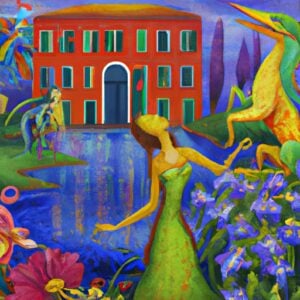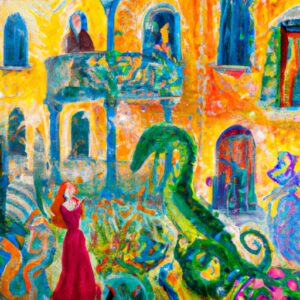Today we’re going to mention some facts about Italian culture.
More precisely, we’ll tell you some Italian proverbs, sayings, idioms, and quotes.
We’ll also tell you some curse words, and we’ll talk about hand gestures and songs.
Facts about Italian
Italian is a romance language, like other languages such as Spanish, French, Catalan, and Portuguese.
This means they have a common ancestor: Latin, which is great news because if you speak Italian, you can understand other Romance languages better than if you didn’t speak them.
Another interesting fact is that Italian coexists with other languages called dialects.
These dialects came from Latin, too, and evolved separately from Italian, even though some aspects are similar.
Dialects are stronger in the North-East and the South, while standard Italian is prevalent in the center and North-West.
Almost half of all Italians speak Italian at home only. Interestingly, 32.2% speak both Italian and a dialect, but 14% (8 million 69 thousand people) use predominantly dialect.
Find out more about Italian language facts.
Italian Proverbs
A proverb is a short, pithy saying that expresses a traditionally held truth or piece of advice based on common sense or experience.
Nothing defines a culture as distinctly as its language, and the element of language that best encapsulates a society’s values and beliefs is its proverbs.
Here are some of the most famous ones:
Chi dorme non piglia pesci.
Literal translation: Those who sleep don’t catch any fish.
English equivalent: You snooze, you lose. Or, the early bird catches the worm.
L’amore è cieco.
Literal translation and English equivalent: Love is blind.
Ride bene chi ride ultimo.
Literal translation: He who laughs last laughs well.
English equivalent: He who laughs last, laughs longest.
Tra il dire e il fare c´è di mezzo il mare.
Literal translation: There’s a sea between saying and doing.
English equivalent: Easier said than done.
Uomo avvisato, mezzo salvato.
Literal translation: A warned man is a saved man.
English equivalent: Forewarned is forearmed.
Chi fa da sé, fa per tre.
Literal translation: who does it by itself? Does it for three people?
English equivalent: Do it yourself if you want it done right.
L’ozio è il padre di tutti i vizi.
Literal translation and English equivalent: Idleness is the father of all vices.
O la va, O la spacca.
Literal translation: It either goes, or it breaks.
English equivalent: Make it or break it.
Learn more about Italian proverbs.
Italian Sayings
Italian sayings are similar to proverbs.
However, a saying is a brief saying or phrase that expresses an opinion or makes a statement of wisdom without the flowery language of a proverb.
They are used in conversation by adults more than children, partially because adults have learned more sayings than children.
With this list of Italian sayings, you can show off your wisdom and understanding of Italian culture during your next conversation with a native speaker:
A buon intenditor poche parole.
Literal translation: Few words are needed for someone who understands well.
English equivalent: A word to the wise.
Meglio tardi che mai.
Literal translation and English equivalent: Better late than never.
Se puoi sognarlo, puoi farlo.
Literal translation and English equivalent: If you can dream it, you can do it.
Quel ch’è fatto, è fatto.
Literal translation and English equivalent: What is done is done.
Rosso di sera, bel tempo si spera.
Literal translation: Red sky in the evening, one hopes for good weather.
English equivalent: Red sky at night, sailor’s delight.
Tutte le strade portano a Roma.
Literal translation and English equivalent: All roads lead to Rome.
Essere in un bel pasticcio.
Literal translation: to be in a nice pie.
English equivalent: to be in a mess.
L’erba del vicino è sempre più verde.
Literal translation and English equivalent: Neighbor’s grass is always greener.
Read more about Italian sayings.
Italian Idioms
Idioms are basically like proverbs and sayings.
Idioms or idiomatic expressions are phrases that have a figurative meaning conventionally understood by native speakers.
This meaning is different from the literal meaning of the idiom’s individual elements.
In other words, idioms don’t mean exactly what the words say.
Idioms often reflect cultural mores, traditions, and values.
Let’s look at some Italian idioms:
Tutto fa brodo.
Literal translation: everything makes broth, soup
English equivalent: Every little bit helps.
Fare polpette di qualcuno.
Literal translation: to make meatballs of someone.
English equivalent: To make mincemeat of someone.
Cercare i peli nell’uovo.
Literal translation: to look for hairs in the egg.
English equivalent: To be picky, to nitpick.
L’abito non fa il monaco
Literal translation: The dress does not make the monk.
English equivalent: You can’t judge a book by its cover.
I fatti parlano più delle parole.
Literal translation: Facts speak more than words.
English equivalent: Actions speak louder than words.
Tanto va la gatta al lardo che ci lascia lo zampino.
Literal translation: The cat goes to the lard so often that she leaves her paw.
English equivalent: Curiosity killed the cat.
Morto un papa, se ne fa un altro.
Literal translation: Once a pope is dead, another is made.
English equivalent: There are plenty more fish in the sea!
Chi non rischia non rosica.
Literal translation: Who doesn’t risk, doesn’t bite.
English equivalent: Nothing ventured, nothing gained.
Learn more about Italian idioms.
Italian Quotes
Let’s now look at some famous Italian quotes said by the following famous people:
Galileo Galilei
16th-century astronomer, physicist, and mathematician. The founder of modern science.
Leonardo Da Vinci
True Renaissance man with numerous interests: architecture, science, mathematics, literature, art, anatomy, astronomy, and many others.
Dante Alighieri
Famous Italian poet and the author of “The Divine Comedy” is considered the greatest piece of writing in Italian created in the Middle Ages.
Sophia Loren
Famous Italian actress who started her career in the 1950s. She made history as the first winner of the award for Best Actress performing in a non-English speaking movie.
Umberto Eco
Author of the famous book “The Name of the Rose” and its film adaptation with Sean Connery.
Here are some of their quotes:
Galileo Galilei
Non puoi insegnare niente a un uomo. Puoi solo aiutarlo a scoprire ciò che ha dentro di sé.
You cannot teach a man anything, you can only help find it within himself.
Non ho mai incontrato un uomo così ignorante dal quale non abbia potuto imparare qualcosa.
I have never met a man ignorant to such an extent that I could not learn something from him.
Leonardo Da Vinci
L’arte non è mai finita, ma solo abbandonata.
Art is never finished, only abandoned.
Siccome una giornata bene spesa dà lieto dormire, così una vita bene usata dà lieto morire.
As a day well spent brings happy sleep, so a life well lived gives happy death.
La sapienza è figliola dell’esperienza.
Wisdom is the daughter of experience.
Dante Alighieri
Noi non potemo avere perfetta vita senza amici.
We cannot have a perfect life without friends.
Sophia Loren
Se non hai mai pianto, i tuoi occhi non possono essere belli.
If you haven’t cried, your eyes can’t be beautiful.
Umberto Eco
La superstizione porta sfortuna.
Superstition brings misfortune.
La lettura è un’immortalità all’indietro.
Reading is immortality backward.
Read more famous Italian quotes.
Italian Curse Words
The Italian language has a wide repertory of swear words or parolacce.
Italian swear words are a form of literature and the Italians take great pride in their swearing.
These words are often accompanied by funny Italian hand gestures.
Like them or not, they’re a fun way to learn the Italian language and they put people together.
Indeed, that’s not the kind of words you’d learn watching the news in Italian.
Let’s now have a look at the most common parolacce.
Vaffanculo!
Go f*#^ yourself!
Cazzo
Dick
Coglioni
Literally: balls.
Used as dickheads or just balls.
Some words start with porco or porca meaning “dirty”. Just so you know madonna means “Virgin Mary”, dio means “God”, cane means “dog”, miseria means “misery”, and puttana means “bitch”:
- Porca madonna
- Porco dio
- Porco cane
- Porca miseria
- Porca puttana
As you can see, some Italians use blasphemous language, that is, profane language. Not everyone accepts it since many people are catholic. However, some others don’t care too much about it.
As for us, we’re just showing you the language in use, so don’t take it personally if you don’t agree with this kind of language.
At the end of the day, it’s important to know about it.
Learn more about Italian swear words.
Italian songs
If you’re learning Italian and want to understand Italian culture, it helps to know a bit about Italian popular music.
From picking up new vocabulary to perfecting the perfect pronunciation, listening to foreign language music can help learners go from complete novice to accomplished conversationalist.
Italian songs are a great way to learn a language by yourself. You can improve your language skills in a fun way and, at the same time, get to grips with some elements of Italian culture.
Here are some good songs you can practice Italian with:
Con te partirò – Andrea Bocelli
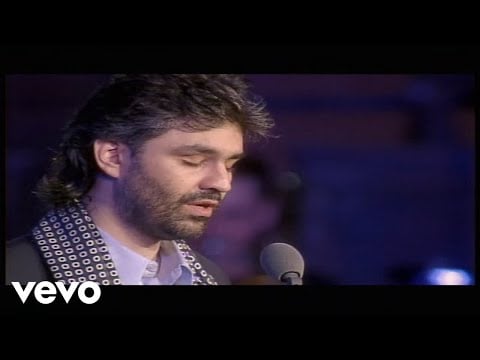
Nel blu dipinto di blu – Domenico Modugno

Un anno d’amore – Mina
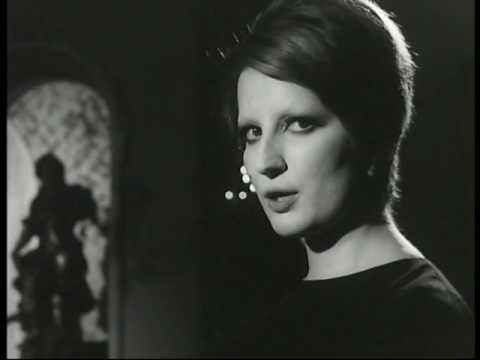
L’emozione non ha voce – Adriano Celentano
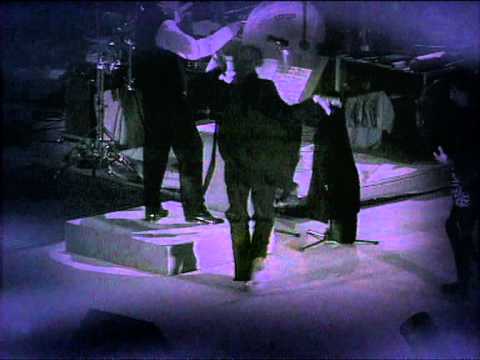
Felicità – Al Bano & Romina Power

Ma il cielo è sempre più blu – Rino Gaetano
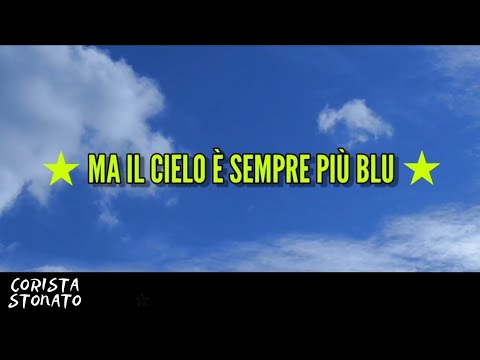
La vita com’è – Max Gazzè

Learn more about Italian songs.
Italian hand gestures
Italian hand gestures are a fascinating aspect of the Italian language.
They are one of the most identifiable characteristics of Italian, setting it apart in the world of languages.
We like to say that a gesture is worth a thousand words.
In other words, an Italian hand gesture is worth a thousand Italian words.
Just so you know, exaggerating gestures is also a way to memorize new words. So, you could try to learn them too.
Since we can’t teach you hand gestures with just words, have a look at this video with 31 Italian hand gestures:

Learn more about Italian hand gestures.













